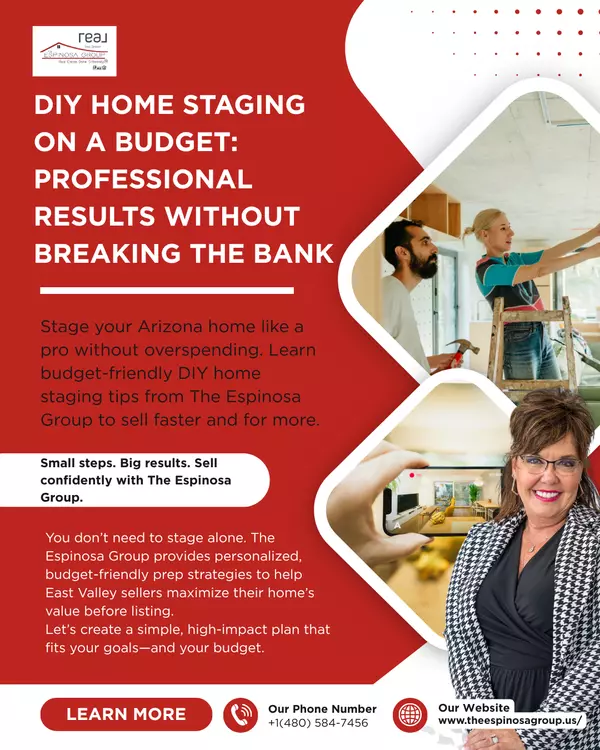How to Use End-of-Year Bonuses to Boost Your Home Buying Budget
The end of the year often brings one of the most anticipated financial windfalls—your end-of-year bonus! Whether you’ve received a year-end bonus from your employer or have been fortunate enough to earn a bonus from a recent sale or project, this extra cash can significantly impact your home buying plans. By strategically using your bonus, you can increase your purchasing power and get a head start on your 2025 real estate goals. Here’s how you can use your end-of-year bonus to boost your home buying budget.
1. Use It as a Larger Down Payment
One of the most immediate benefits of using your bonus is the ability to increase your down payment. The more money you put down upfront, the less you’ll need to borrow, which can reduce your monthly mortgage payment and even help you secure a better interest rate.
- 25% Down vs. 20% Down: If you're able to put 25% down instead of 20%, this may help you avoid private mortgage insurance (PMI), saving you money over time.
- More Equity: A larger down payment also means more immediate equity in your home, which can help if you need to refinance in the future or if property values fluctuate.
2. Cover Closing Costs
Closing costs can be a significant barrier to homeownership. These fees can range from 2% to 5% of the home’s purchase price, covering expenses like lender fees, title insurance, inspections, and more. Using your bonus to cover these costs ensures you won’t need to dip into your emergency savings or liquidate other investments.
- No Surprises: If your bonus is enough to cover both the down payment and closing costs, you can walk into your new home with fewer financial obligations, allowing you to focus on settling in.
- Keep Your Savings Intact: Using your bonus for these expenses keeps your primary savings intact, giving you a financial cushion for future home improvements or other emergency needs.
3. Fund a Home Renovation or Improvement Fund
After buying your home, you may want to make updates or renovations to personalize the space. Your end-of-year bonus can serve as the perfect funding source for this.
- Create a Renovation Budget: Use part of your bonus to fund minor home improvements or repairs before moving in, such as painting walls, updating fixtures, or refreshing landscaping.
- Build a Project Fund: Set aside some of your bonus in a designated account for longer-term projects like kitchen remodels or bathroom upgrades. This approach gives you financial flexibility without impacting your monthly budget.
4. Pay Down Existing Debt to Improve Your Credit Score
Your credit score plays a crucial role in securing favorable mortgage terms. If you have existing debt—like credit card balances or personal loans—using your bonus to pay down these debts can improve your credit score, giving you access to better mortgage rates.
- Reduce Debt-to-Income Ratio: A lower debt-to-income ratio means that lenders may see you as a lower risk and offer more competitive loan terms.
- Boost Credit Score: Paying off high-interest credit card balances or student loans can have an immediate positive impact on your score, which could result in saving thousands of dollars over the life of your mortgage.
5. Build or Reinforce Your Emergency Fund
While it might not be the most exciting way to spend your bonus, reinforcing your emergency fund is a smart long-term financial decision, especially if you're buying a home.
- Financial Cushion: Moving into a new home often comes with unexpected costs—repairing appliances, paying for utilities, or addressing issues that didn’t come up during inspections. Having a well-funded emergency savings account helps you handle these costs without stress.
- Peace of Mind: A solid emergency fund also provides peace of mind, knowing that you can cover your living expenses for several months in case of a job loss or other unforeseen events.
6. Make Extra Mortgage Payments
Consider using part of your bonus to make extra payments toward your mortgage principal.
- Principal Reductions: By paying extra on your principal, you can reduce the overall amount of interest you pay throughout the life of the loan.
- Pay Off Your Mortgage Faster: Making lump sum payments toward the principal can shorten your loan term and help you build equity in your home quicker.
7. Save for Home Maintenance and Repair Fund
Homeownership comes with ongoing maintenance needs. From regular upkeep to unexpected repairs, budgeting for these costs can make your homeownership experience more enjoyable and less stressful.
- Create a Maintenance Budget: Set aside a portion of your bonus to fund routine maintenance tasks like HVAC servicing, lawn care, and roof inspections.
- Emergency Fund for Repairs: Having a dedicated home repair fund can help you quickly address any issues that arise, from appliance breakdowns to plumbing emergencies, without breaking the bank.
Using your end-of-year bonus wisely can give you a head start in your home buying journey or help you manage the financial side of the home buying process with ease. Whether you use it for a larger down payment, home improvements, or debt reduction, it’s a valuable resource that can help you reach your homeownership goals faster.
Start planning now and work with an experienced agent at The Espinosa Group to ensure your financial decisions align with your 2025 real estate goals. Ready to make your homeownership dreams a reality? Let’s get started today!
Categories
- All Blogs (225)
- Contracts, Negotiations & Process (4)
- Home Buying Process (19)
- Home Buying, Selling, and Investing Tips (65)
- how to buy a house (9)
- How to sell your house (11)
- Importance of a Real Estate Agent (1)
- real estate investment strategies (14)
- Real estate Market in Arizona (7)
- ROI tips (14)
- Selling a home (19)
- STAGING DIFFERENTLY (37)
- Staging tips for selling (23)
- THE AGENT (5)
Recent Posts













